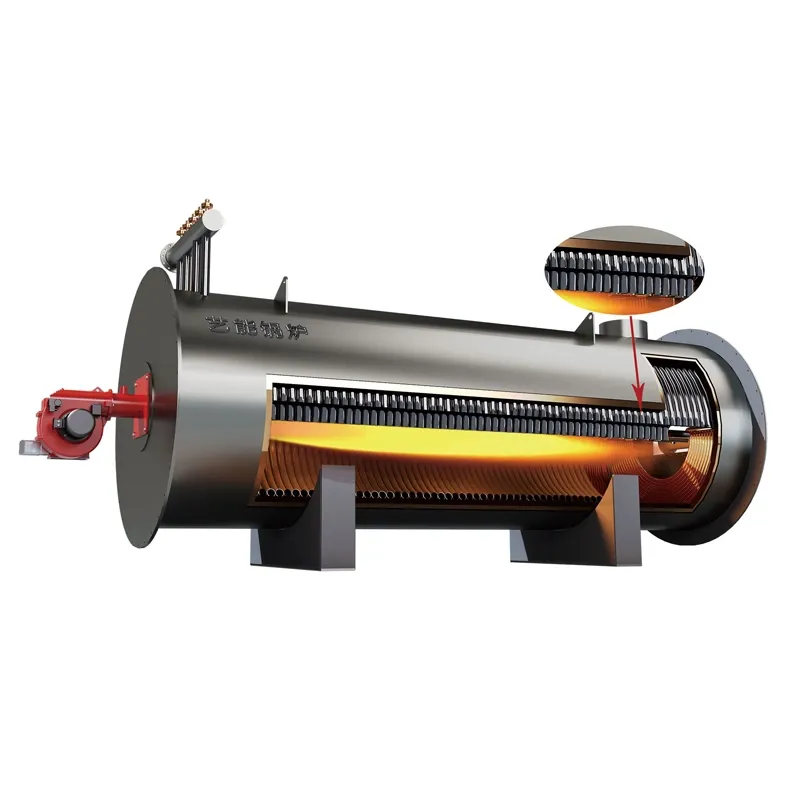thermal oil boiler for press machine products
Understanding Thermal Oil Boilers for Press Machines
As industries continue to evolve, the demand for efficient heating solutions has never been higher. In this context, thermal oil boilers have emerged as a key player, particularly for press machines used in various manufacturing processes. This article delves into the functionality, benefits, and applications of thermal oil boilers designed specifically for press machines.
What are Thermal Oil Boilers?
Thermal oil boilers, also known as thermal fluid heaters, operate on the principle of transferring heat through a medium that remains in a liquid state at high temperatures. Unlike traditional boilers that utilize steam, these systems use oil as a heat transfer medium, allowing for a more uniform heating process. This is particularly advantageous in applications requiring precise temperature control, such as in press machines used in the plastic, rubber, and manufacturing industries.
How Thermal Oil Boilers Work
The process begins with the thermal oil, which circulates through the boiler and absorbs heat generated by the combustion of fuel. The heated oil is then pumped to the press machine, where it passes through heat exchangers to warm up the working parts. As it transfers its heat, the oil cools down and returns to the boiler to be reheated. This closed-loop system ensures an efficient and consistent heating process, minimizing heat loss and energy consumption.
Benefits of Using Thermal Oil Boilers
1. High Efficiency Thermal oil boilers can achieve high thermal efficiency, often exceeding 90%. This efficiency is attributed to their ability to maintain stable temperatures without the need for high pressure, resulting in less energy waste.
2. Precise Temperature Control With the ability to reach and maintain high temperatures (up to 400°C or more), these boilers provide excellent temperature control, which is crucial for processes like molding and pressing where precision is key.
thermal oil boiler for press machine products

3. Safety Operating at lower pressures than steam boilers, thermal oil systems significantly reduce the risk of explosions and leaks. This not only enhances safety for the operational staff but also minimizes the risk of costly downtime due to accidents.
4. Versatility Thermal oil boilers can utilize various fuel sources, including natural gas, diesel, and biomass, making them adaptable to different operational needs and preferences.
5. Lower Maintenance The simpler design of thermal oil systems, combined with their lower operating pressures, results in less wear and tear, thereby reducing maintenance costs and extending service life.
Applications in Press Machines
Thermal oil boilers are primarily used in industries where press machines are essential. For instance, in plastic manufacturing, the consistent heating provided by thermal oil allows for even melting and molding of thermoplastic materials. Similarly, in the rubber industry, thermal oil boilers help maintain consistent temperatures during the vulcanization process.
Moreover, they are also employed in the production of composite materials, where controlled heating is pivotal in achieving the desired properties of the final product. From automotive parts to electronic components, the applications of thermal oil boilers in press machines are vast.
Conclusion
In summary, thermal oil boilers represent a sophisticated solution for heating requirements in press machines across various industries. Their high efficiency, precise temperature control, and safety features make them an excellent investment for manufacturers looking to optimize their processes. As technology progresses and industries seek more sustainable solutions, the role of thermal oil boilers will undoubtedly become even more significant in the manufacturing landscape. Embracing such advanced heating technology not only enhances productivity but also aligns with the evolving standards of safety and efficiency in modern industrial operations.
-
Industrial Steam Boiler Corporation - Reliable Industrial Boiler Manufacturer & SupplierNewsJul.08,2025
-
High-Efficiency Steam Boiler Heat Exchanger Supplier & Factory Durable Products for IndustryNewsJul.08,2025
-
Premium Electric Steam Boiler Manufacturer Reliable Company & Factory SolutionsNewsJul.08,2025
-
Commercial Hot Water Boiler - Reliable Supplier & Factory Direct Price for Efficient Heating SolutionsNewsJul.07,2025
-
Top Hot Oil Boiler Manufacturer - Reliable Thermal Oil & Coal Fired Boiler Manufacturer ManufacturerNewsJul.07,2025
-
High-Efficiency Hotel Hot Water Boiler – Leading Exporters & Quotes for HotelsNewsJul.07,2025

